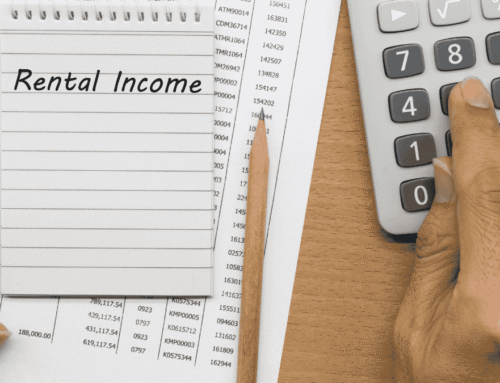Can Foreigners Buy Property in the USA? – A Comprehensive Guide for 2025
🏡 Can Foreigners Buy Property in the USA? A Comprehensive Guide for 2025
As a savvy investor looking beyond your local market, one of the first questions you might have is fundamental: Can foreigners truly buy property in the USA? The answer, unequivocally, is yes, foreigners can absolutely buy property in the USA. I’m a British national, and I’ve purchased over 120 rental properties in the U.S. as a foreigner! Whether you’re seeking a vacation home, or an investment property, the United States offers a remarkably open and accessible real estate market to non-U.S. citizens and foreign nationals.
This comprehensive guide for 2025 will demystify the process, address common concerns, and provide actionable insights into how you, as an international buyer, can successfully acquire investment property in the USA.
The Definitive Answer: Yes, Foreigners Can Buy Property in the USA
Despite common misconceptions, there are no federal laws preventing foreigners from owning real estate in the United States. Unlike some other countries with stricter controls, the U.S. generally grants foreign buyers the same rights to purchase and own property as its own citizens. This fundamental openness makes the US an attractive destination for international real estate investment.
- No visa required
- No green card required
- No special licence required
- No social security number required
While federal restrictions are absent, it’s worth noting that a handful of U.S. states have passed or are considering laws regarding foreign ownership of certain types of land, most notably agricultural land or land near sensitive military bases. These state-level nuances are typically not a concern for international buyers interested in residential homes or standard commercial investment properties within urban or suburban areas, but it’s always prudent to refer to any specific state regulations in your chosen market.
For more information specific to Canadian buyers, see: Canadian Investors’ Guide to Buying U.S. Rental Properties.

The Appeal: Why International Buyers Choose US Real Estate
According to the National Association of Realtors, foreigners purchased 78,100 residential properties in the United States for the year up to March 2025. In fact, foreign investment is up +33% year-on-year to $56 billion USD. So, why are so many non-US residents looking to buy property in the USA? The appeal stems from several compelling factors:
- Market Stability & Transparency: The US real estate market is renowned for its transparency, clear legal frameworks, and generally stable economy, offering a sense of security for overseas investments.
- Diversification Opportunities: For investors looking to diversify beyond their domestic markets (like the UK, with its current economic and regulatory pressures), US real estate provides an excellent opportunity to spread risk across different geographic and economic cycles.
- Potential for Strong Rental Yields & Appreciation: Particularly in strategic, affordable markets like the US Midwest (e.g., Cleveland, Ohio), international buyers can find properties offering significantly higher rental yields and robust appreciation potential compared to many global counterparts. You can visit our online portal to see investor-ready turnkey rental properties.
- Mature Professional Infrastructure: The US boasts a highly developed real estate and property management industry, making it feasible to manage investments from afar.
- Financing: There are some fantastic real estate financing options for foreigner. You can refer to my brief overview on mortgage options for foreign nationals.
These benefits collectively make US real estate for non-citizens a highly attractive proposition for wealth growth and passive income generation.
Key Requirements for Foreigners Buying Property in the USA
While the core answer is “yes,” there are practical requirements and processes that foreign nationals acquiring property in the US should be aware of:
- No Visa or Residency Required: As mentioned, you do not need a U.S. visa, Green Card, or U.S. citizenship to purchase property. Property ownership does not grant you residency.
- Individual Taxpayer Identification Number (ITIN): While not strictly necessary for the purchase itself, you will need an ITIN to open a U.S. bank account, obtain a mortgage (if financing), and, most importantly, to file your U.S. tax returns on rental income or property sales.
- U.S. Bank Account: Essential for transferring funds, making payments, and receiving rental income.
- Funds Verification: Be prepared to provide documentation proving the source of your funds, especially for large cash purchases, due to anti-money laundering regulations.
See Also: How to Structure Your U.S. Property Investment for Maximum Tax Efficiency and Liability Protection
Navigating Financing Options for Non-US Residents
How do foreigners buy property in the USA when it comes to funding? You generally have two main avenues:
- Cash Purchase: This is the simplest and fastest method, often giving buyers a stronger negotiating position. Funds are typically wired directly to a U.S. escrow or title company.
- Financing: While more complex than for U.S. citizens, many specialized U.S. lenders offer mortgages for non-residents, including foreign national DSCR loans, and conventional foreign national mortgages. Expect higher down payment requirements, potentially higher interest rates, and specific documentation requirements. Securing pre-approval for such a loan is a crucial early step if you plan to finance.
Your Step-by-Step Purchase Process as a Foreign Buyer
Successfully buying investment property in the USA as a foreigner is a fairly straight forward process. Here’s a practical, actionable guide:
1. Define Your US Investment Blueprint
- Determine your financial goals (cash flow vs. appreciation).
- Establish your budget and available liquid capital.
- Research and select a target market that aligns with your goals (e.g., stable, affordable markets like the Midwest).
2. Assemble Your Elite US Investment Team
- Professional Property Management Company: Essential for remote management, tenant placement, and maintenance.
- US Tax Advisor: Crucial for understanding U.S. tax obligations (income, property, capital gains) and international tax treaties.
- US-Based Lawyer/Attorney: For contract review, legal advice, and navigating the closing process.
- US Bank/Financing Partner: To manage funds and potentially secure a foreign national mortgage.
- Investor-Focused Real Estate Agent: Your primary contact for identifying and showing properties.
Note: Setting up your U.S. real estate investment structure is a vital step to ensure you protect your liability, and don’t pay too much tax. For more information, you can read my guide on how to structure your U.S. property investment.
3. Pinpointing Your Ideal US Property & Underwriting the Deal:
- Your real estate agent will present properties.
- Underwrite the Deal: Perform detailed financial analysis (with your team’s help) to project rental income, expenses, Net Operating Income (NOI), and cash-on-cash return. Ensure the numbers make sense for your goals.
4. Secure Financing Pre-Approval & Submit Your Offer:
- If financing, obtain a pre-approval letter from a foreign national mortgage lender.
- Work with your agent to craft a competitive purchase offer, typically including an earnest money deposit and contingencies (e.g., inspection, financing).
5. Sign the Purchase Contract & Prepare for Closing:
Once your offer is accepted, this critical period of due diligence begins. This will include:
- Professional Home Inspections: Have a certified inspector thoroughly check the property’s condition. This should include a roof inspection, foundations, and a sewer scope.
- Title Search: Your lawyer/title company will ensure a clear title, free of liens.
- Appraisal: Your mortgage lender will get an independent valuation of the property from a licensed appraiser.
6. The Grand Finale: Closing on Your US Investment Property:
If all of the due diligence checks out, the day of official ownership transfer has now arrived!
You’ll wire your down payment funds to the escrow/title company, and the mortgage lender will wire their funds. The attorney or escrow/closing company will execute the transfer.
Your lawyer can often arrange for documents to be signed electronically or via a power of attorney, allowing for a remote closing.
JOIN MY VIP PRIORITY INVESTOR LIST
Get Off-Market U.S. Investment Properties and Financing Deal for Foreign Nationals Delivered Directly to Your Inbox Every WeekYES! ADD ME TO THE PRIORITY INVESTOR LIST
Understanding Tax Implications for Foreign Property Owners
One of the most critical aspects of foreign property ownership in the USA is understanding the tax landscape. As a non-US resident, you’ll be subject to:
- U.S. Federal Income Tax: On rental income and capital gains from selling U.S. property. Your tax advisor will guide you on filing requirements (Form 1040NR or 1120-F).
- State Income Tax: Some states also have their own income taxes on rental earnings.
- Property Taxes: Levied by local governments (counties, cities) and are typically paid annually or biannually.
- FIRPTA (Foreign Investment in Real Property Tax Act): When you sell U.S. real estate, FIRPTA generally requires a portion of the sale price (typically 15%) to be withheld and sent to the IRS. This isn’t an extra tax, but a withholding to ensure taxes are paid.
- Estate Tax: The U.S. has estate tax treaties with some countries (like the UK) that can significantly reduce exposure.
- Home Country Taxes: Don’t forget your tax obligations in your home country. Comprehensive tax advice, factoring in double taxation treaties, is non-negotiable.
For more information, you can refer to my guide on U.S. taxes for non-residents buying U.S. real estate.
Managing Your US Investment Property From Overseas
For international real estate investors, effective local property management is key.
- Professional Property Manager: Your manager handles all day-to-day operations: marketing vacancies, tenant screening, lease agreements, rent collection, property maintenance, and even eviction proceedings if necessary. This professional service makes owning property thousands of miles away truly hands-off.
- Clear Communication: Establish regular reporting schedules and communication channels with your property manager and tax advisor.
- Review Performance: Periodically review financial statements and market performance to ensure your investment is on track.
Essential Tips for International Real Estate Investors
Based on years of experience guiding non-US residents buying real estate, here are some key principles for success:
- Don’t DIY Your Team: The right local professionals are worth their weight in gold. They navigate complexities you simply can’t from abroad.
- Prioritize Cash Flow: Especially for passive income goals, focus on markets and properties that demonstrate strong, consistent rental yields.
- Due Diligence is Non-Negotiable: Never skip thorough inspections and legal reviews.
- Understand Tax Implications Upfront: Plan your tax strategy before you buy.
- Patience and Long-Term Vision: Real estate is a long-term play. Be patient, stick to your blueprint, and trust your team.
Conclusion: Your Path to US Property Ownership
The answer to “Can foreigners buy property in the USA?” is a resounding yes, backed by a transparent legal system and a mature market infrastructure. For savvy international buyers, the U.S. offers a compelling opportunity for portfolio diversification, cash flow, and long-term appreciation.
By understanding the requirements, assembling a trusted team, and following a clear step-by-step process, you can confidently navigate the complexities of acquiring U.S. real estate.
Ready to explore the possibilities of owning U.S. investment property? Let’s discuss your unique goals and how we can guide you every step of the way.
GROW YOUR WEALTH WITH U.S. REAL ESTATE
Start your US real estate investment journey today, and book a Free 1-2-1 Discovery Call with a member of our senior management team.
“Having personally invested in over 120 US rental properties from overseas, I know the true value of getting the right advice and support.
David Garner – Cashflow Rentals

GROW YOUR WEALTH WITH U.S. REAL ESTATE
Start your U.S. real estate investment journey today with high-quality cashflow real estate. Book a Free 1-2-1 Discovery Call with a member of our senior management team to discuss your personalized strategy.
“Having personally invested in over 120 US rental properties from overseas, I know the true value of getting the right advice and support.
David Garner – Cashflow Rentals
Frequently Asked Questions (FAQs)
Can a non-U.S. citizen buy a house or investment property in the USA?
Yes, absolutely. The United States has a remarkably open real estate market. There are no federal laws or citizenship requirements that prevent foreign nationals, non-residents, or those without a U.S. visa from purchasing both residential and commercial investment property across the vast majority of the country. Property ownership in the U.S. is not restricted by your nationality or immigration status.
Are there any restrictions on foreigners buying property in certain U.S. states?
While federal law broadly permits foreign property ownership, a handful of U.S. states have specific restrictions, primarily on the ownership of agricultural land or land near sensitive military installations, particularly for foreign governments or entities from certain countries. For typical residential or commercial investment properties, these state-level restrictions are rarely an issue, but it’s always wise to consult with a local real estate attorney.
Do foreigners need a U.S. visa or Green Card to buy property in the USA?
No, you do not need a U.S. visa, Green Card, or any specific immigration status to legally purchase property in the United States. Property ownership does not grant you residency rights or a pathway to a Green Card. However, if you plan to reside in the property, you will need a valid visa for your stay.
How do foreign nationals typically finance a property purchase in the U.S.?
Foreign nationals often finance U.S. property purchases through two main avenues: cash purchases or foreign national mortgage loans. While cash offers can simplify the process, many U.S. lenders offer specialized mortgage programs for non-residents. These typically require higher down payments (e.g., 30-50%) and may have different qualification criteria compared to traditional U.S. mortgages, often not requiring a U.S. credit history or Social Security Number.
What are the ongoing tax obligations for foreigners owning property in the USA?
Foreign owners of U.S. property are subject to several ongoing tax obligations. These typically include annual property taxes (assessed by local authorities), U.S. federal income tax on any rental income generated (often at a 30% flat rate unless an election is made or a treaty reduces it), and state income taxes in some states. When selling, the Foreign Investment in Real Property Tax Act (FIRPTA) often mandates a withholding tax on the sale proceeds. It’s crucial to work with a qualified U.S. tax advisor experienced in international taxation.












